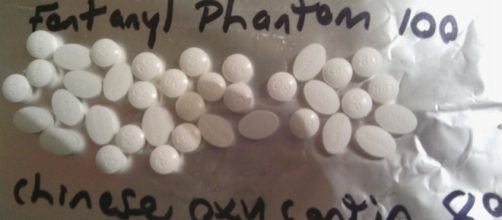On Saturday afternoon, March 10th, photographer Nan Goldin instigated a protest against opioid Oxycontin at the Metropolitan Museum of Art in New York City. Goldin amassed a group of around 100 agitators to target the Sackler Wing of the museum.
There, according to The Guardian, they threw pill bottles labeled “prescribed to you by the Sackler Family” into the reflecting pool surrounding the Temple of Dendur. The RX number read 200,000 dead. With banners and chants, the protest urged the Sacklers to direct their philanthropic funds towards rehab, rather than extravagant cultural projects.
They left peacefully after about 20 minutes of protest.
Nan Goldin stages opioids protest in the Met's Sackler Wing: https://t.co/6z9cPMrbdW pic.twitter.com/hRJzr7VLUr
— Walker Reader (@walkermag) March 12, 2018
Who are the Sacklers?
The Sacklers founded the small Stamford, Connecticut-based business that has grown into Purdue Pharma. Originally the family marketed drugstore shelf products like earwax remover and laxatives, but by the late 80's they had begun to explore pain relief medications. OxyContin, a modified oxycodone, launched in 1995.
Purdue remains a private company. Named as the 16th richest America family by Forbes in 2015, the Sacklers' net worth has climbed to at, or above, $14 billion.
Their contribution to the Met is but one in an expensive list of donations to museums and universities, including The Smithsonian, The Guggenheim, Harvard, and Oxford.
In light of the opioid crisis, Purdue Pharma has been the subject of numerous lawsuits regarding the false marketing of OxyContin. After pleading guilty, they paid $635 million worth of fines in 2007 to the Department of Justice. Yet none of the family members have been personally charged or admitted to having financially benefited from the sale of OxyContin.
The Nan Goldin factor
Nan Goldin is known for the activist content of her photography work. In the past she has addressed the LGBTQ community and the HIV crisis, and currently channels her efforts towards combatting the opioid crisis.
Goldin was prescribed OxyContin following a surgery in 2014. Having been a former heroin addict, she reported to The Guardian being hooked on the pills practically "overnight."
Like many with opioid dependencies, Goldin turned to street drugs when she could no longer obtain OxyContin by prescription. She fell back on heroin and fentanyl, leading to a life-threatening overdose.
Is change coming?
Lawsuits surrounding the original drug are still pending, but OxyContin has recently been reworked into a less addictive format for distribution. Purdue Pharma plans to continue selling OxyContin, but has decreased its sales force significantly and agreed to no longer market the drug directly to doctors offices.
Purdue Pharma also presented a risk management plan for opioid prescription, produced in conjunction with the Food and Drug Administration.
Despite these efforts, the National Institute on Drug Abuse still reports over 115 deaths in America per day from opioid overdose. Per year, the national financial deficit resulting from the collective abuse of opioids is about $78.5 billion.
Drugmakers Scale Back Marketing of Opioids https://t.co/M52UI39UCA via @ijournal
— G.M. Peters Agency (@GMPetersAgency1) March 12, 2018
"Purdue Pharma LP’s decision to stop promoting its opioid drugs to doctors is being hailed as the first result of a judge’s push for concrete solutions to a nationwide epidemic." pic.twitter.com/6LafGlwMjS


